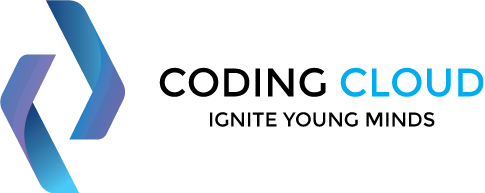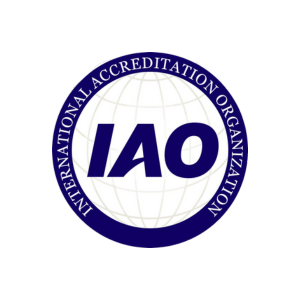
Durations: 40 hours
Lectures: 98
Students: Max 5
Level: All Levels
Language: English
Certificate: Yes
MERN Stack Training Course
A MERN Stack training course is designed to teach students how to build modern, dynamic web applications using the React JS & Node JS libraries as a full stack web developer. The course may cover topics such as:
Download PDF
What Will I Learn?
-
Setting up a development environment for React & Node JS

-
Creating React & Node components and understanding the component lifecycle

-
Working With Node Package Manager

-
Using state and props to manage data in a React application

-
Working with forms and handling user input

-
Routing and navigation in a React application

-
Handling Buffers & Streams

-
Working With Express Framework

Course Schedule
-
4 - Months Program

-
5 Sessions a Week

-
1 Hour for Each Session

-
The Next Session Begins Every Monday

ENROLL NOW
Access this course now
Material Includes
-
Certificate of Completion

-
Access on Mobile & Laptop

-
Notes

Audience
-
Aspiring Web Developers

-
Back End Web Developers

-
Interest in Full Stack

-
Anyone Interested in JavaScript Frameworks

Course Content
HTML Document & Page Structure
HTML Headings
Paragraph
HTML Formatting Tags
Attributes – Href, Src, Width, Height, Alt, Title
HTML Links
HTML Images
Line Break
Horizontal Rule
HTML Favicon
Style Attribute
Background Color
Text Color, Fonts & Text Size
Text Alignment
Table
HTML List
Ordered List & Unordered List
Div
HTML Forms & Elements
Text Field & Label Elements
Submit Button
Check Box & Radio Buttons
Drop Down
File Upload
CSS Selectors, ID & Class
CSS Styling – Inline CSS
CSS Styling – Internal CSS/External CSS
Styling Text Styling Fonts
Styling Text Alignments
Styling Links Styling Lists
CSS Border
CSS Outline
CSS Margin & Padding Styling Tables
CSS Positioning – Static, Relative, Fixed
CSS Floating CSS Directions
CSS Align
CSS Navigation Bar
CSS Image Gallery
CSS Rounded Corners
CSS Border Images
Background Image
Full-Size Background Image
Multiple Background
Gradients
Multiple – Rainbow Color Gradient
CSS Animation
CSS Pagination
All Operators
Datatypes
Functions
Objects
Strings
Methods
Arrays Methods
Sorting
Events
If Else, For Loop, While Loop, Switch Case, Break & Continue Statements
Arrow Functions, Strict Mode
Classes, Models, Objects
JS DOM (Document Object Model)
AJAX XML HTTP
jQuery
Understanding The React JS Library & Its Advantages
Setting Up A React Development Environment
Basic Concepts Of React: Components, State, Props
Building Uscer Interfaces With React JS
Creating Components & Nesting Components
Handling User Events With React
Working With Forms & Input Validation
Managing State In React JS
Understanding State Management In React
Using setState() To Update The Component State
Lifting State Up To The Parent Component
Routing & Navigation In React JS
Setting Up React Router
Configuring Routes & Route Parameters
Navigating Between Routes
Working With APIs & Backend Services
Making API Calls
Handling Asynchronous Data Loading
Rendering Data From APIs
Testing & Debugging React JS Applications
Debugging Techniques For React
Writing Unit Tests For React Components
Context API
Higher Order Components (HOC)
React Hooks: useState, useEffect, useContext, useRef
Deploying React JS Applications
Preparing For Production Deployment
Building & Optimizing Production-Ready Bundles
Features Of Node.js
Concept
Where To Fit & Not Fit
Event-Driven Programming Style
What Is Asynchronous
Node.js runtime Node.js Runtime
Download Source Code
Installation On OS
Verify
Node.js runtime Global Vs Local Setup
Update Module
CRUD Module
Node.js runtime Setup Express
Request & Response
Handling Routes
Route Middleware
Objects
Cookies Management
File Upload
HTTP Methods
Node.js runtime The Benefit Of Streams Over Buffers
Create / Write / Read Operations On Buffers
Process On Buffers
Read / Write Data By Streams
Pipeline
Chaining Stream
Node.js runtime HTTP URI & Methods
RESTful Web Services
Expose Solution As API
Best Practice For REST API Solution
Node.js runtime Benefit Of Callback
Asynchronous Communications
Block & Non-Blocking
Standard Callback Pattern
Async Flow Control Library
Executing In Parallel
Node.js runtime Event Emitter API
Multiple Event Listeners
Event Emitter Pattern
Class Methods & Event Loop
Blocking Event Loop
Escaping Event Loop
Node.js runtime Connect With MySQL
Introduction Of MongoDB
Connect With MongoDB
Defining a Schema
Defining a Model
Node.js runtime Spawning Child Process
Create & Kill Processes
Building With HTTP Severs
HTTP Requests
Secure HTTP Server
Using Test Runner
Using Assertion Testing Module
Built-in Debugger
Console Log
Node Inspector
MERN Stack Training Course Overview
MERN Stack is a popular combination of technologies used to build modern web applications. MERN stands for MongoDB, Express, React, and Node.js.
Here is an overview of what you might expect to learn in a MERN Stack training course:
MongoDB: MongoDB is a NoSQL database used to store data in a JSON-like format. In a MERN Stack course, you will learn how to use MongoDB to store and retrieve data for your web applications.
Express: Express is a web application framework used to build backend services in Node.js. In a MERN Stack course, you will learn how to use Express to create RESTful APIs that can communicate with your MongoDB database.
React: React is a JavaScript library used to build user interfaces. In a MERN Stack course, you will learn how to use React to create interactive and responsive web applications that can communicate with your backend services.
Node.js: Node.js is a JavaScript runtime environment used to build scalable and high-performance web applications. In a MERN Stack course, you will learn how to use Node.js to create backend services that can run on the server-side.
Integration: Finally, in a MERN Stack course, you will learn how to integrate all of these technologies together to build a complete web application. You will learn how to build a frontend application using React and how to connect it to your backend services built using Node.js and Express.
Overall, a MERN Stack training course will provide you with a solid foundation in modern web development using some of the most popular technologies available today.
Read More
What is MERN Stack ?
MERN Stack is a popular combination of open-source technologies used for building modern web applications. The acronym MERN stands for MongoDB, Express, React, and Node.js, which are the four main technologies that make up the stack.
MongoDB is a NoSQL database that stores data in a flexible and scalable JSON-like format.
Express is a web application framework that runs on top of Node.js, providing a robust set of features for building server-side applications and APIs.
React is a JavaScript library for building user interfaces. It allows developers to create reusable UI components and manage complex state changes efficiently.
Node.js is a JavaScript runtime environment that allows developers to run JavaScript code outside of a web browser. Node.js is commonly used for building server-side applications and APIs.
By combining these technologies, developers can create scalable and performant web applications with a modern and flexible architecture. MERN Stack is particularly well-suited for building real-time, data-driven web applications, as well as single-page applications (SPAs) and progressive web applications (PWAs).
Read More
Career Growth & Demand of MERN Stack Developers in India
MERN Stack is a popular technology stack used for building modern web applications, and there is a high demand for skilled MERN Stack developers in India. Here are some factors that contribute to the career growth and demand of MERN Stack developers in India:
High demand for web applications: With the increasing adoption of digital technologies in India, there is a high demand for web applications across industries, including e-commerce, healthcare, education, and finance. MERN Stack is a popular choice for building web applications because of its scalability, flexibility, and performance.
Shortage of skilled developers: There is a shortage of skilled MERN Stack developers in India, which has resulted in high demand for professionals with expertise in this technology stack. Companies are willing to pay a premium for experienced MERN Stack developers who can build high-quality web applications.
Growing startup ecosystem: India has a thriving startup ecosystem, and many startups are looking for developers with expertise in MERN Stack to build their web applications. Startups often require developers to work on multiple technologies, and MERN Stack developers are well-suited for such roles because of their proficiency in multiple technologies.
Remote work opportunities: With the rise of remote work, MERN Stack developers can work with companies from anywhere in the world. This has opened up new opportunities for MERN Stack developers to work with global companies and clients.
Overall, the career growth and demand for MERN Stack developers in India are expected to remain strong in the coming years. Skilled developers who keep themselves up-to-date with the latest technologies and trends are likely to have a successful career in this field.
Read More




